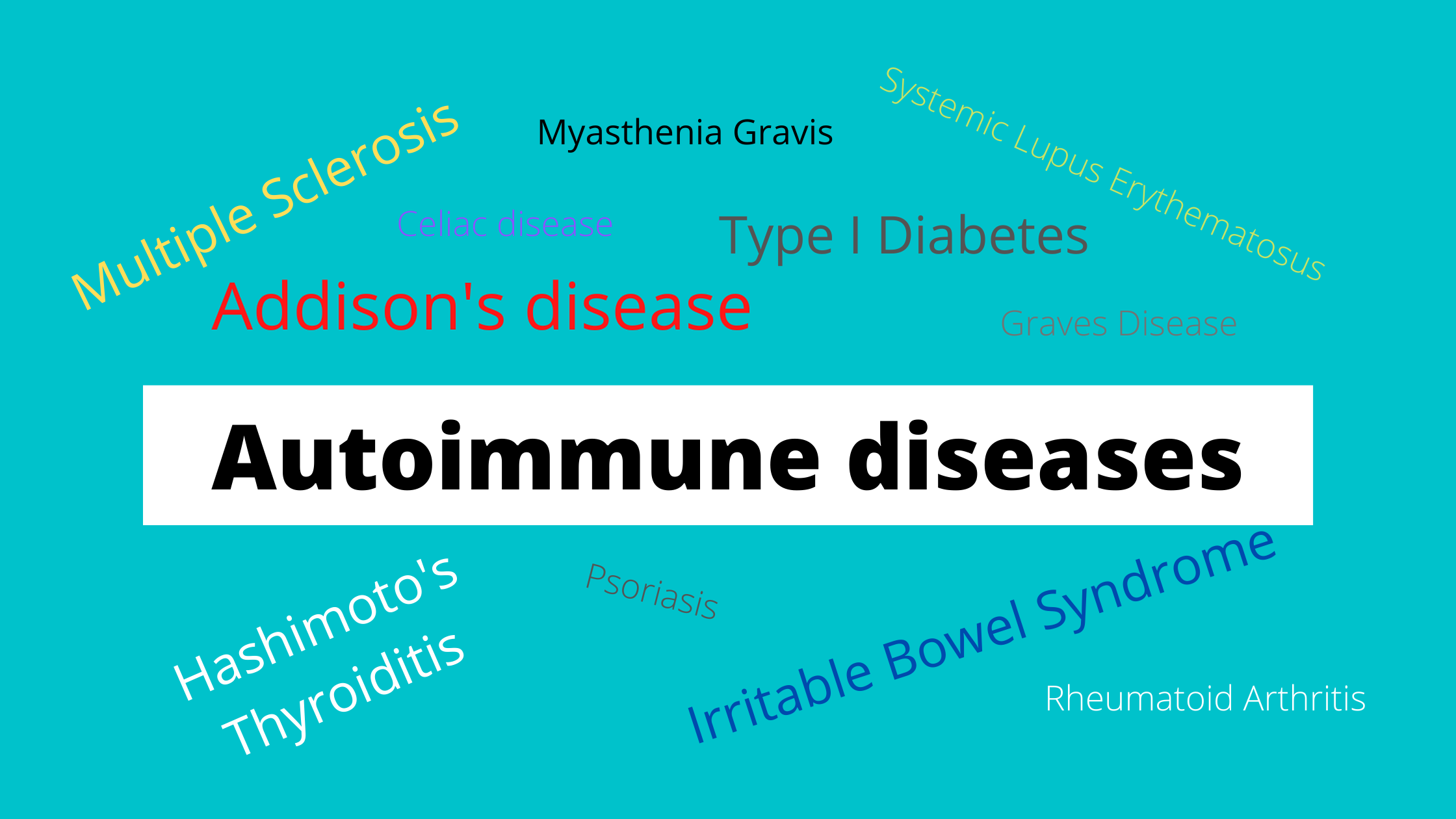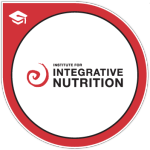
Your immune system was designed to fight foreign objects/organisms and protect your body. It was not designed to fight your organs.
What went wrong?
Modern medicine discovered that there are certain factors that are common in autoimmune conditions including rheumatoid arthritis, multiple sclerosis, lupus, Hashimoto's thyroiditis, and more. In this short article, I will describe some of the most common factors and how to address them.
Before we dive into the 5 common culprits, let's talk about inflammation. Inflammation is how your body responds to injury. White blood cells are called to fight any organisms, clotting factors are called to stop any bleeding, and your body does what it does best: protects you. However, when this inflammation is chronic, you can see how this response will hurt your body. If your body is constantly fighting something: an infection, stress, food sensitivities, sometimes this leads to a state of immune dysregulation. In other words, your immune system becomes confused and it starts attacking the weakest tissue, which is determined partly by your genetics.
Autoimmune conditions used to be of "unknown origins". However, in the last few decades, scientists have discovered several causes/contributing factors to autoimmune conditions. Hereditary genes play an important role, but the factors that you can control are often more important. Sometimes even the genetic predisposition can be "fixed". For example, if you have a defect in a gene responsible for the uptake or activation of a certain vitamin like vitamin A, or B vitamins, you can supplement with activated forms of these vitamins and prevent the deficiency which would have created disease dynamics. For more information, I recommend a book by Dr. Ben Lynch called Dirty Genes.
5 Ways to Support Healing
Fix gut bacteria
70% of your immune system is in your gut. We have trillions of friendly bacteria in your gut. Any disturbance in gut bacteria by antibiotics, foods containing antibiotics, or not eating enough prebiotics (food that nourishes your bacteria), will lead to a deficiency in the number/variety of these healthy bacteria.
Work with your doctor to treat any infections you have, and then restore the healthy bacteria by using a probiotic that works for you.
Generally, a good probiotic is one with different strains of bacteria, not just a high number. In case of an autoimmune condition, you want to include Saccharomyces boulardii provided that you don't have any yeast sensitivity. If you generally have symptoms of a disturbed colon, you might want to choose the best probiotic with your health practitioner because most of them contain sugars that feed beneficial bacteria and if you have those in the wrong places, they could ferment these sugars and create gases.
Control stress
If all autoimmune conditions share one thing in common, I would say it's stress. Stress in the body can be created by mental-emotional stress, infections, and physical stress like strenuous exercise can also create stress in some people, and toxins lead to oxidative stress in the body.
Identifying which types of stress are present in your unique body is a great step towards healing. Childhood trauma has been linked to autoimmune conditions (1). Exposure to stress is highly correlated with the development of autoimmune conditions (2). Stress triggers immune dysregulation by altering inflammatory cytokine production, which are inflammatory markers in the body (3).
Just knowing this fact makes you in control. You can start the process of healing by controlling stress levels using your favorite tool. Leading a busy lifestyle promotes stress in the body. Your body can not differentiate between running for your life and running from a dangerous animal. The same response occurs, and the same hormones are released on purpose. The body is trying to support you and respond to the immediate threat to your life. When you create this threat trigger on daily basis, your body crashes. Your immune system is suppressed and dysregulated. And your weakest organ is affected.
I like to suggest to my clients a few tools for stress management. Every client chooses the tools that resonate with them. Time management, breathing techniques, yoga, meditation, and journaling are a few of my favorite tools. If you simply just slow down on purpose, it could be enough. Going for walks in nature, prioritizing downtime and self-care creates a relaxation-dominant response in your body which is crucial to healing.
Check for food sensitivities
One of the modern models of explaining how your body reacts to its own cells is molecular mimicry. This happens when your body is exposed to substances that are similar in structure to other substances in the body. (4) In simple words, this creates confusion and your body starts reacting to its own substances. A leaky gut is when the intestinal wall starts creating gaps and becomes permeable. Food debris, bacterial waste products like lipopolysaccharides, and other substances start leaking into the blood. The immune system reacts to these substances (food intolerances) and other substances (your own tissue) that look similar to it.
A good way to test food sensitivities is to test. An IgG food intolerance test will show some of these reactions. However, all tests are not 100% accurate, and sometimes more elimination is required. Some common food intolerances are gluten, dairy, corn, soy, night-shade vegetables, and eggs. A good practitioner to guide you on an elimination diet is the best bet.
Support your immune system
Your immune system needs tools. Providing these tools through nutrition and supplementation will support your immune system and help its regulation. The most famous vitamin for the immune system is vitamin C. This is abundant in foods like broccoli, strawberries, citrus fruits, bell pepper, kiwi, and many more! Vitamin C IV infusion (5) has been used by doctors all over the world to aid the immune system and fight autoimmune dynamics.
Correcting vitamin D levels has been shown to support the immune system (6). A blood level of 40-60 ng/ml is required for most people. It's important to note that levels higher than 80 ng/ml could be harmful to the immune system. Checking your level and gradually correcting your vitamin D level will help your immune cells. By gradual correction, I mean starting with 2000 IU daily and building up the level until your reach your required dosage for a specific amount of time. Work with your health practitioner to figure out the best dose for you. When taking a vitamin D supplement, make sure that your magnesium levels are sufficient. Vitamin D uses magnesium. Also, vitamin D increases the absorption of calcium. I do not recommend the 50,000 IU dose because it might affect calcium levels. If you are prone to heart diseases, use vitamin K2 from food (grass-fed butter, eggs) or as a supplement with vitamin D to make sure it directs calcium towards your bone and away from soft tissue. The calcification of soft tissues is a common cause of atherosclerosis.
Zinc is the third well-known mineral for supporting the immune system. Zinc deficiency is associated with autoimmunity (7). Zinc is required for more than 300 enzyme reactions in the body. Those are just the ones we know about! Zinc is an essential element that is not stored in the body. Therefore, it needs to be consistently provided in the diet. Foods rich in zinc include organs like liver, red meat, poultry, oysters, and other shellfish like crab, some nuts and seeds like pumpkin seeds and cashews, and whole grains (when properly soaked). Plant-based sources of zinc are less bioavailable because grains, legumes, and nuts/seeds contain phytates which prevent the absorption of minerals like zinc. That is why I keep repeating: properly soaked. Soaking nuts/seeds, whole grains, and legumes dissolves the phytates and avoids this problem. Measuring zinc in the serum will show the short-term level of zinc. A better way to measure the long-term zinc level is to measure it in the red blood cells. Since their life span is 120 days, this level will be a better indication for longer-term zinc levels in your blood. Zinc gluconate, zinc picolinate are well-absorbed supplements. Take up to 30 mg/day if you are deficient and take it with food. Zinc supplements might cause nausea when taken on an empty stomach.
Vitamin A is less-known for its effects on the immune system. Vitamins D and A actually have a lot in common. They are both steroid hormones, they both have similar receptors on immune cells and they are both fat-soluble vitamins. Researchers have discovered a link between vitamin A deficiency and autoimmunity (8). Vitamin A can be found in plant sources like carrots, sweet potatoes, pumpkin, and spinach as an inactive form called beta-carotene. However, some people are genetically unable to convert beta-carotene into the active form of vitamin A, or retinol. The active form of vitamin A is only found in animal food like grass-fed butter, liver, eggs, and cod liver oil. Check your vitamin A levels and supplement with up to 10,000 IU units daily if you are deficient.
The correction of vitamins like D and A is promising as adjunctive therapy for autoimmune conditions. (9).
Treat yourself better
Believe it or not: self-rejection is associated with autoimmunity. How are you speaking to yourself? Would you speak the same way to a good friend? What thoughts, beliefs, and words are you constantly using with your body? There is a communication system between your thoughts and your cells. Start using your words and thoughts wisely. Start building a good relationship with your new best friend: You.
If you've been recently diagnosed with an autoimmune condition and would like to consult with me on your condition, click here for a breakthrough session and discover how you can work one-on-one with me to start the healing process.
References
1. Dube SR, Fairweather D, Pearson WS, Felitti VJ, Anda RF, Croft JB. Cumulative childhood stress and autoimmune diseases in adults. Psychosom Med. 2009;71(2):243-250. doi:10.1097/PSY.0b013e3181907888
2. Song H, Fang F, Tomasson G, et al. Association of Stress-Related Disorders With Subsequent Autoimmune Disease. JAMA. 2018;319(23):2388–2400. doi:10.1001/jama.2018.7028
3. Ljudmila Stojanovich, Dragomir Marisavljevich,Stress as a trigger of autoimmune disease,Autoimmunity Reviews,Volume 7, Issue 3,2008,Pages 209-213,ISSN 1568-9972,https://doi.org/10.1016/j.autrev.2007.11.007.
4. Fasano A. Leaky gut and autoimmune diseases. Clin Rev Allergy Immunol. 2012 Feb;42(1):71-8. doi: 10.1007/s12016-011-8291-x. PMID: 22109896.
5. Kodama M, Kodama T, Murakami M, Kodama M. Autoimmune disease and allergy are controlled by vitamin C treatment. In Vivo. 1994 Mar-Apr;8(2):251-7. PMID: 7919130.
6. Yang CY, Leung PS, Adamopoulos IE, Gershwin ME. The implication of vitamin D and autoimmunity: a comprehensive review. Clin Rev Allergy Immunol. 2013 Oct;45(2):217-26. doi: 10.1007/s12016-013-8361-3. PMID: 23359064; PMCID: PMC6047889.
7. Sanna, A., Firinu, D., Zavattari, P., & Valera, P. (2018). Zinc Status and Autoimmunity: A Systematic Review and Meta-Analysis. Nutrients, 10(1), 68. https://doi.org/10.3390/nu10010068
8. Emory University. (2009, March 10). Vitamin A Signals Offer Clues To Treating Autoimmunity. ScienceDaily. Retrieved March 3, 2021 from www.sciencedaily.com/releases/2009/03/090301181421.htm
9. Mora JR, Iwata M, von Andrian UH. Vitamin effects on the immune system: vitamins A and D take centre stage. Nat Rev Immunol. 2008;8(9):685-698. doi:10.1038/nri2378


